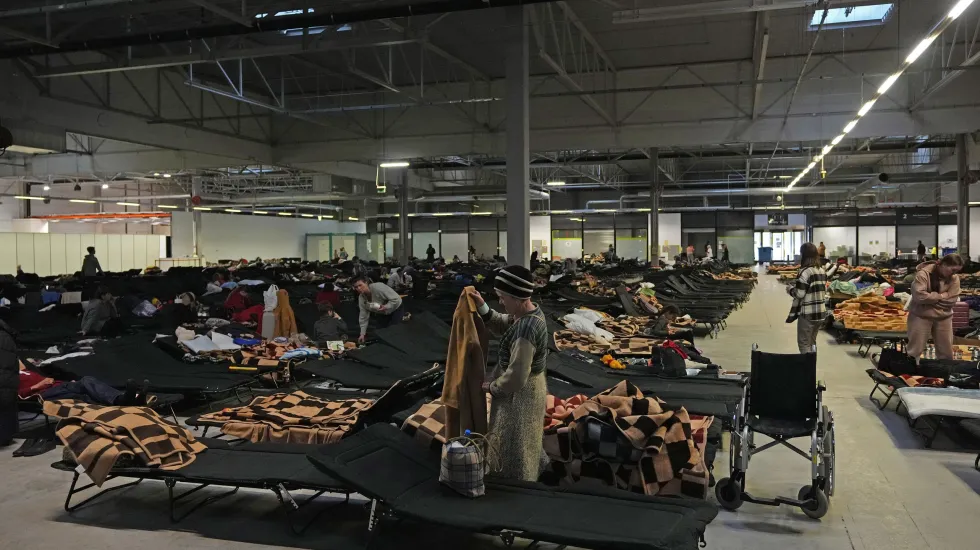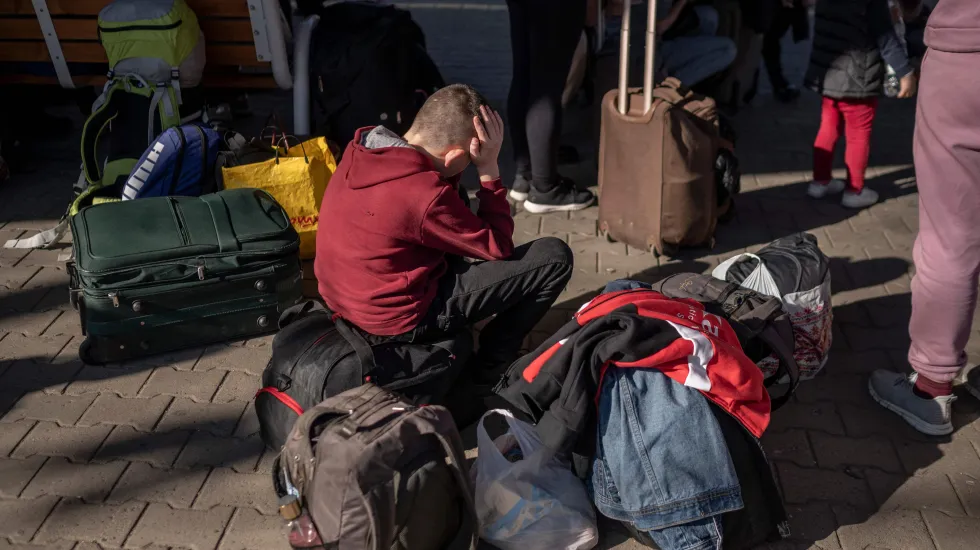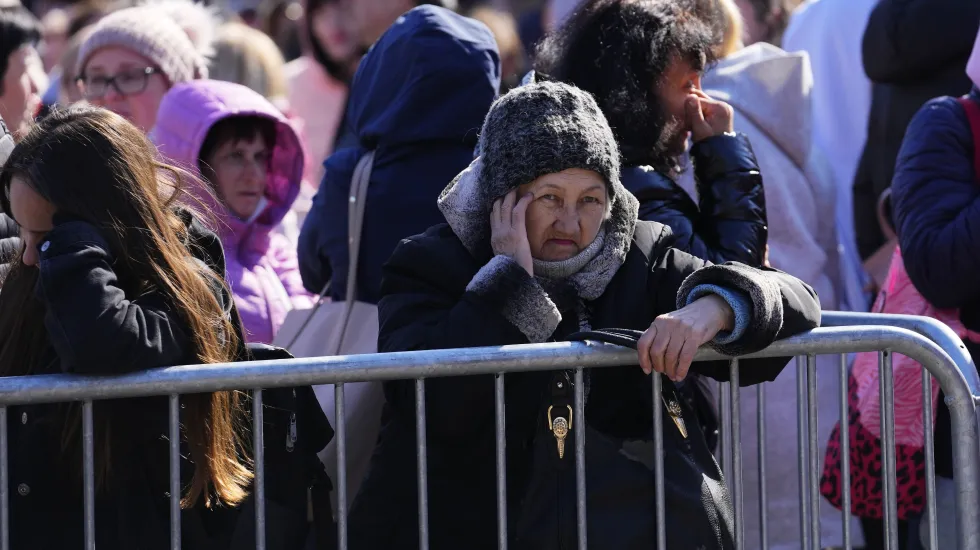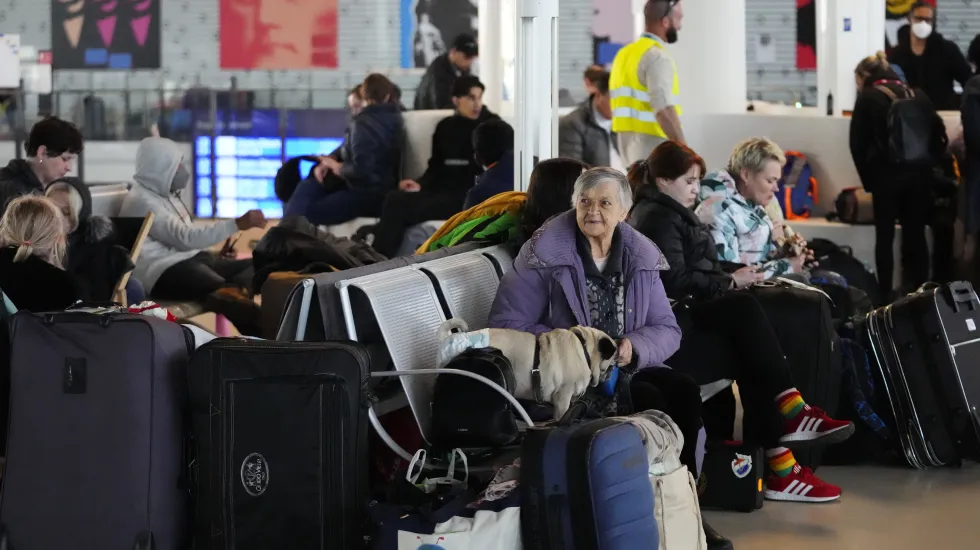
With Warsaw already besieged by 300,000 Ukrainian refugees, Chicago is preparing to “ease the burden” by accepting and caring for its own influx of mothers and children fleeing the war with Russia, Mayor Lori Lightfoot said Thursday.
During a video conversation with Warsaw Mayor Rafal Trzaskowski, Lightfoot joined those calling for “special status” for Ukrainian refugees so they can come freely into the United States.
“My hope is, we’re gonna see that pipeline” to Chicago, which boasts an entrenched population of Ukrainians who have been coming to the city since the 1880s — and one of the largest Polish populations outside Warsaw.
“We will get prepared with our friends in the Ukrainian community that are here, with the Polish community and others. … There’s gonna be a great need … for basic medical supplies and mental health supports. … We’re making sure we’re doing the work around housing and jobs — everything from soup to nuts.”
Trzaskowski did not hold back while explaining why it’s so important for Chicago and other U.S. cites to ease Warsaw’s burden.

Since Vladimir Putin’s unprovoked war began, 300,000 Ukrainian refugees have poured into Warsaw, increasing the population of the Polish capital by 15%.
During the entire Mediterranean crisis, 200,000 refugees arrived in all of Europe, the Warsaw mayor said.
The burden is not just in the sheer number of people seeking refuge in Warsaw. It’s that so many are considered “vulnerable,” including senior citizens, 17,000 Ukrainian children in foster care and 20 children born after their Ukrainian mothers arrived in Warsaw.
“In the beginning, 98% of the Ukrainians coming to Warsaw were taken care of by their friends and family or by complete strangers who simply opened their hearts and opened their doors,” Trzaskowski said.
“Now, more and more people need assistance, need accommodations. They need psychological help. More and more people who come are very much traumatized by war. Now, we’re welcoming people who are escaping moms who lost their parents or members of their family. We will be helping no matter what, but the services of my city are quite stretched.”

The central government “did its bit on the border,” but in the cities, “It is us,” Trzaskowski said. What’s needed is an “international relocation system” in Europe that includes the European Union and United Nations agencies.
“They know how to deal with crises like that. They have a system that works like Lego bricks put together. One agency is responsible for setting up reception centers. Another for water and sanitation. Another [helps] refugees buy their own food, sends psychological help or help in education,” he said.
Without such a vast and coordinated network, Trzaskowski is concerned the resolve of his residents could waiver.
“The solidarity we have seen in Poland is unprecedented, incredible. But once the city services get stretched and people feel the burden, the solidarity might weaken. That’s why we need to do it together,” he said.
Lightfoot seemed genuinely surprised and moved by the numbers of young mothers with small children arriving in Warsaw and by the 17,000 Ukrainian foster kids.
“That’s something that hasn’t broken through. We’ll look at ways we can target resources for children coming to Poland, particularly foster kids traumatized in a number of different ways. We don’t think about that in ways that, perhaps, we should. But we’ll make sure, after this conversation, that we will,” she said.

President Joe Biden on Thursday said the United States has agreed to accept up to 100,000 people escaping from the war and to increase support for Eastern European nations that have taken in most of those fleeing Russian forces.
The administration did not provide a timeline but it’s typically a lengthy process and the officials said all 100,000 may not necessarily arrive this year. Most of the refugees probably will settle in parts of the U.S. that already have large concentrations of Ukrainians, which includes Chicago.
In 2019, about 141,000 Polish Americans were estimated to be living in Chicago, down from about 152,000 a few years before. The latest figure on the city’s Ukrainian population, from 2015, put it at roughly 13,000.
No matter how much support Warsaw gets, Trzaskowski said he’s certain of one thing: Putin’s days are numbered.
“He thought that he could divide the Ukrainian society. And we see that the Ukrainian society is so incredibly united and incredibly courageous. He wanted to divide the west and he saw that our response was united and very, very strong and it remains strong. That’s why we need to share the burden. We need to send the right signal,” the Warsaw mayor said.
“Putin has miscalculated and that will be the end of him.”
Contributing: Associated Press; Manny Ramos







